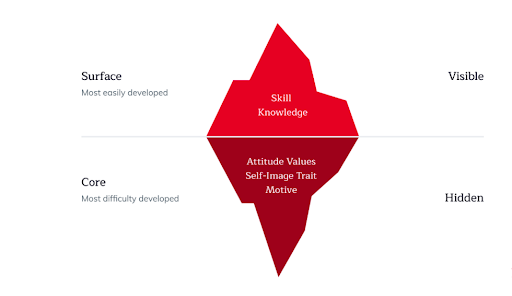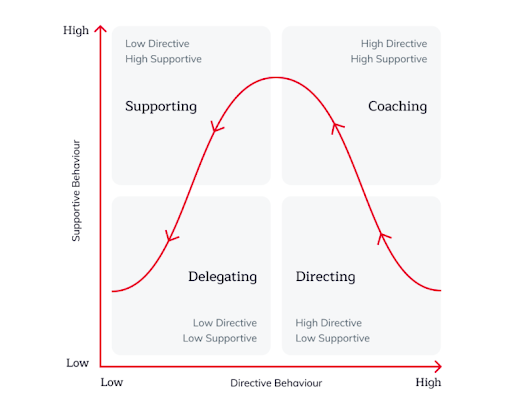
Who exactly are A-players, and how do you lead them?
A-Players are high performers who consistently deliver exceptional results and exceed expectations. While certain traits define A-Players, their characteristics can vary based on an organisation's culture and objectives.
A-Players serve as catalysts for business growth and company development. These individuals deliver outstanding results, go the extra mile, demonstrate proactive behaviours, embrace accountability, and play a vital role in driving performance and innovation. They often form the core team, shaping corporate culture and setting values-based examples for others to follow.
However, an A-Player in one company might be a poor fit in another due to differences in soft skills, mindset, and cultural alignment. Therefore, each organisation must define what an A-Player looks like within its unique context.
Why do core skills matter in A-player evaluation?
When recruiting high performers, the focus should be on core soft skills, as these are generally more challenging to develop than technical expertise. While hard skills are essential, they are often easier to acquire compared to the interpersonal abilities and mindsets that define high performers.
Traditionally, interpersonal skills were labelled as “soft,” implying secondary importance to technical “hard” skills. However, prominent A-Players are often distinguished by these so-called soft skills, excelling in communication, teamwork, emotional intelligence, and leadership. They adeptly manage interpersonal dynamics, resolve conflicts, and foster collaboration, driven by a strong desire for growth and continuous learning.
The Iceberg Model of Competencies

The Iceberg Model of Competencies highlights why core skills are essential. The visible, easily developed part of the model includes skills and knowledge, which can be improved through courses, training, and workshops. However, the deeper, less visible core – comprising attitude, values, self-image, traits, and motives – is far more difficult to cultivate.
Mindset, shaped by personal beliefs, experiences, self-perception, and emotional intelligence, also resides in this core. Ultimately, these core skills and mindset determine cultural fit, aligning an individual's values, motives, and behaviors with the company's values and leadership styles.
As such, defining an A-Player should begin with core skills. If a candidate’s mindset, emotional intelligence, and values don’t align with the company’s requirements, developing these traits may be challenging or even impossible. Conversely, a lack of technical expertise can often be addressed if the individual possesses strong core skills, a learning orientation, and alignment with the company’s values.
Why developing core skills can be challenging?
The development of core skills, which influences mindset, is complex and often requires a level of personal commitment typically driven by self-reflection and introspection. This kind of deep, personal growth is frequently achieved through work with psychologists, therapists, or coaches and only materialises when an individual has a genuine desire to change. Without this inner motivation, fostering such traits in a person may be impossible.
Where to find A-Players?
Finding A-Players can be challenging due to their high demand and the specific competencies required for each organisation. Whether you’re cultivating A-Players internally or hiring externally, the process should begin with defining the competencies needed to excel as a top performer on your team.
These competencies should include clear labels, detailed descriptions, positive and negative behavioural indicators, and defined proficiency levels. While many competency models exist, it’s often most effective to create one tailored to your organisation’s unique needs. For instance, the behaviour associated with being "proactive" may vary depending on your company’s culture and context.
When recruiting top talent externally, consider using the A-method, detailed in Who: The A Method for Hiring by Geoff Smart and Randy Street. This approach provides a structured framework for identifying and validating A-Players, with practical strategies for attracting and retaining top talent.
How to lead A-Players effectively?
Managing A-Players requires a different approach than leading average team members. A-Players thrive on autonomy, challenge, and growth, and leadership should cater to these needs.
Over the years, I’ve found two critical pillars for working effectively with A-Players: motivation and situational leadership.
1. Motivation: Understanding what drives A-Players is essential. Professional assessments, such as the Motivational Profile by W. Richie and P. Martin, DiSC, or MBTI, can help reveal an individual’s personality type and motivation, providing insight into what drives them both professionally and personally
2. Situational Leadership: A-Players often take on multiple roles within a company, so it’s essential to gauge their maturity in each role and adjust your leadership style accordingly. Developed by Dr Paul Hersey and Dr Ken Blanchard, situational leadership emphasises that no single “best” leadership style exists; instead, effective leadership varies based on the specific function, role, or task at hand

Conclusion
A-Players are essential to an organisation’s growth and success. Their value goes beyond technical expertise, rooted instead in core skills that shape their impact on teams and company culture. Developing these skills requires intrinsic motivation; without it, cultivating core skills can be challenging. When recruiting A-Players, start by crafting a competency model that resonates with your organisation’s values, and lead them with a tailored approach that meets their needs for autonomy, challenge, and growth. In doing so, you’ll build a team capable of driving sustained success and innovation.
For more startup news, check out the other articles on the website, and subscribe to the magazine for free. Listen to The Cereal Entrepreneur podcast for more interviews with entrepreneurs and big-hitters in the startup ecosystem.

